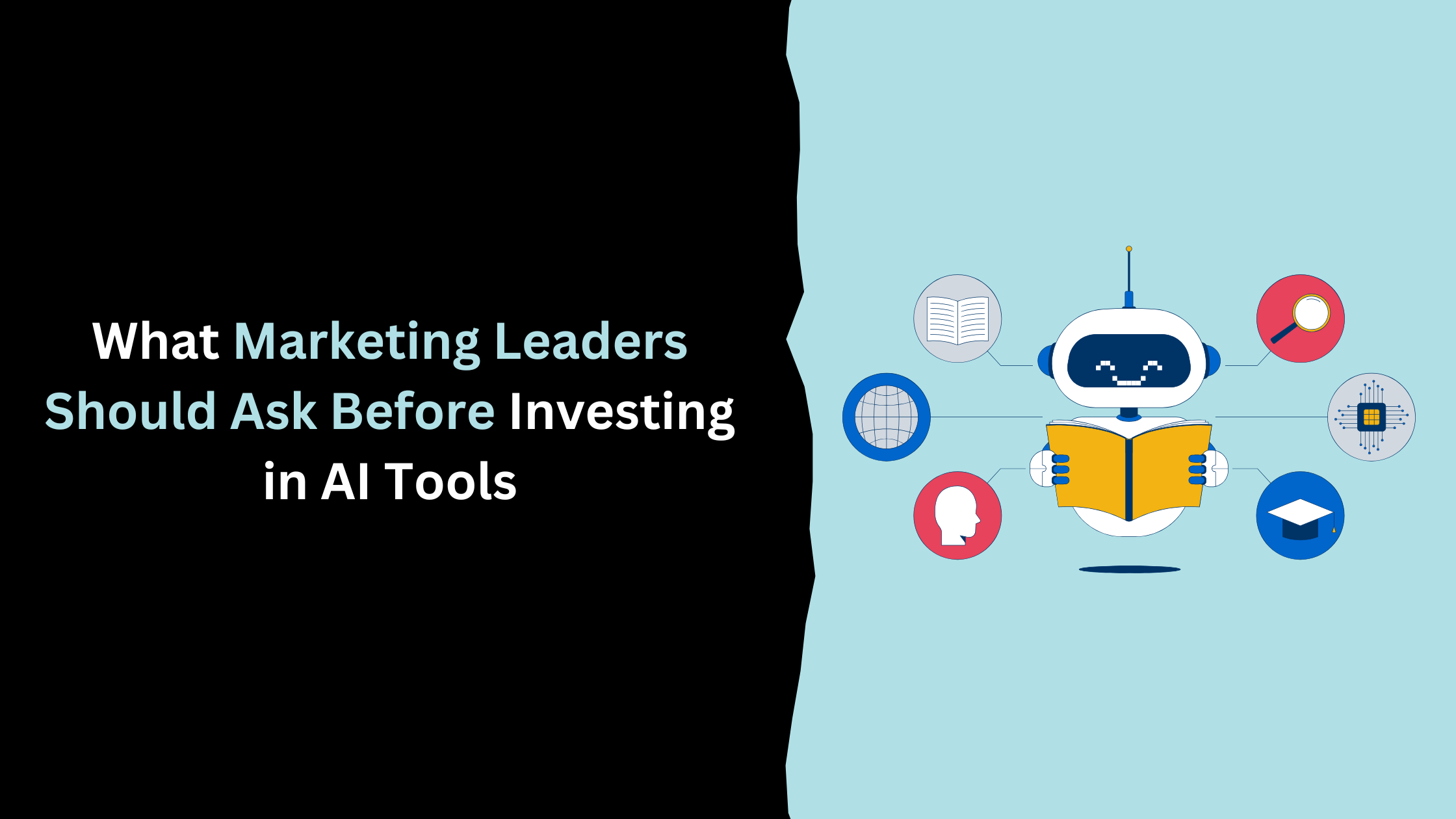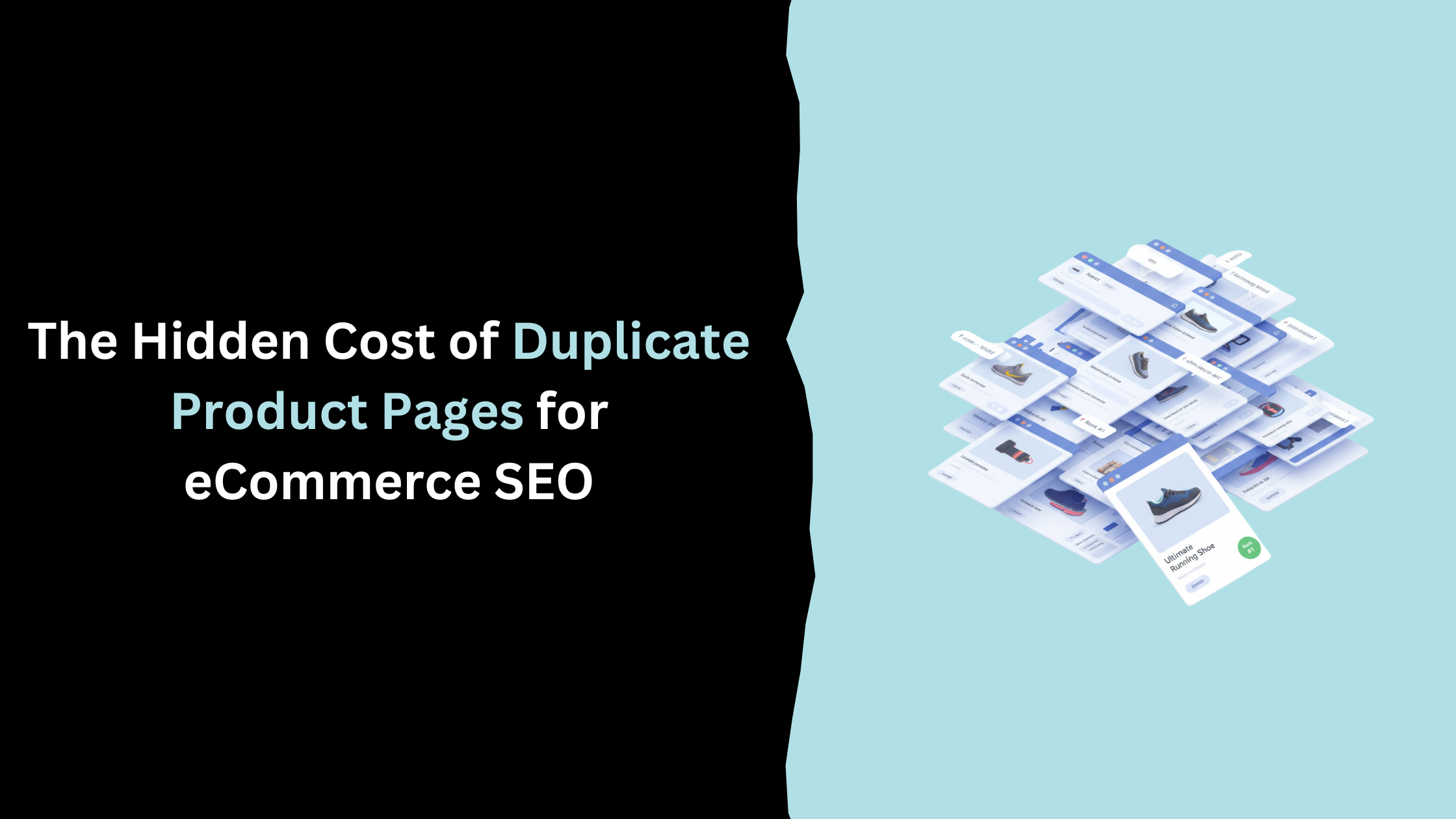Table of Contents
Why AI Tools Aren't Always the Smartest Investment
AI is supposed to transform marketing. Automate everything. Personalise campaigns. Generate insights faster than any human team could manage. That's the pitch, anyway.
Reality? Plenty of companies are burning through budgets on tools that barely work.
“Gen AI is everywhere—except in company P&L.” - McKinsey & Company, Seizing the Agentic AI Advantage Report
There's this massive pressure to adopt AI or risk looking outdated. But hardly anyone stops to ask if the technology actually solves a real problem they're having. It's all just box-ticking and keeping up with competitors.
Before signing off on another subscription, pause. Ask some proper questions first. Focus on whether you'll actually get returns, whether it'll integrate with what you've already got, and whether it'll make any tangible difference - not just whether it sounds impressive in meetings.
1. What Problem Are We Actually Solving?
Skip the demos for now. What's actually broken?
Buying an AI content generator when your real issue is that nobody knows what your brand stands for? You've just bought an expensive way to produce more confusing messaging. Well done.
Let's say your team wastes eight hours weekly pulling campaign reports together. An AI reporting tool that automates data visualisation could genuinely give people their time back. But if the real headache is inconsistent messaging across channels, you don't need software; you need better brand guidelines and maybe some actual communication between departments.
Look at your bottlenecks. AI should tackle specific, measurable problems like "reduce reporting time by 40%" or "improve lead scoring accuracy by 20%."
When you know exactly what you're trying to fix, figuring out if something's worth the investment becomes much easier.
2. How Will It Fit Into Our Existing Tech Stack?
New platforms look great until they won't connect to your CRM.
You're using HubSpot, Google Analytics, Salesforce. If this AI tool doesn't integrate with those systems, your team ends up exporting CSVs and manually uploading data all day. You've created more work, not less. Plus introduced more errors.
Always test integrations before committing. Ask vendors for demos of how it connects. Check if it supports Zapier or has native APIs.
Bring your IT team into the conversation early - they'll catch issues you'd never think of.
3. What's the Real Cost Beyond Licensing?
The advertised price is never what you actually pay. That £500 monthly licence is just the beginning.
There's onboarding costs. API fees. Staff training. A predictive analytics platform might need a data specialist to clean and upload information weekly. Content automation tools often require hundreds of prompt templates before they produce anything you'd actually publish.
These hidden costs aren't mentioned upfront but they add up quickly.
Calculate total cost of ownership - software, setup, maintenance, training, everything. If the numbers don't work after that, it's the wrong tool.
4. What Data Does It Need - and Is Ours Ready?
AI runs on data. If your data's messy, the results will be equally messy. Garbage in, garbage out isn't just a cliché.
Customer segmentation tools are a good example. If your CRM has outdated contacts, missing purchase histories, duplicate records everywhere, the AI will group customers incorrectly. Your targeting falls apart from there.
Run a data audit first. Look for duplicates, gaps, and inconsistent formatting. It's tedious but necessary.
Also check data compliance. GDPR matters. If the tool processes customer data outside the UK or EU, verify it meets the required standards. Getting this wrong costs more than the software itself.
5. How Do We Measure ROI?
AI sounds impressive in demos, but without clear metrics, you can't prove it's working.
Using AI for email subject lines? Compare open rates before and after. Lead scoring? Track conversion rate changes over time.
Focus on business outcomes, not vanity metrics. "Increased engagement" is meaningless. "Cut content production time by 30% while maintaining conversion rates" is something concrete.
Test it in one department first. Run a 90-day pilot with specific KPIs. Then decide if it's worth expanding.
6. Who Will Use and Maintain It?
AI isn't plug-and-play. Someone needs to own it.
Who handles setup? Who optimises it? Who manages it daily? If your marketing team uses ChatGPT-style tools for ad copy but nobody's set guidelines or provided training, outputs will vary wildly - wrong tone, questionable accuracy, inconsistent quality.
Without ownership, adoption drops fast.
Assign a tool "champion" who keeps things running, manages updates, and ensures people use it properly.
7. Is It Ethical, Compliant, and Transparent?
AI brings risks - bias, data misuse, opaque decision-making. Always check how vendors train their models and what happens to your data after upload.
Using an AI content tool? Does it store your drafts? Use them for training? If you're using predictive AI for recruitment or audience profiling, can you see how it reaches conclusions?
Choose vendors who are transparent about how their models operate and compliant with data privacy laws.
Request GDPR compliance documentation and ethical use policies. Responsible AI isn't just legal protection - it's brand protection.
8. What Happens If It Fails?
Even well-reviewed tools can underperform. Maybe the insights are too generic. Maybe adoption never happens.
Have a backup plan. Can you cancel early? Does the vendor offer trials or pay-as-you-go pricing?
Treat initial AI projects as experiments, not permanent commitments.
Run a 60-day pilot of an AI social scheduler before replacing your existing system. Learn, review, pivot if needed.
Conclusion
AI has real potential, but hype shouldn't drive decisions.
The smartest marketing leaders chase results, not trends.
Focus on solving actual problems, ensuring proper integration, measuring real impact. AI becomes a genuine advantage instead of an expensive distraction.
Before investing, ask these questions. If the answers work for your team, your data, your goals - you're buying AI that delivers for your business, not just boardroom talking points.
Get in touch today
complete the form below for an informal chat about your business







.png)
